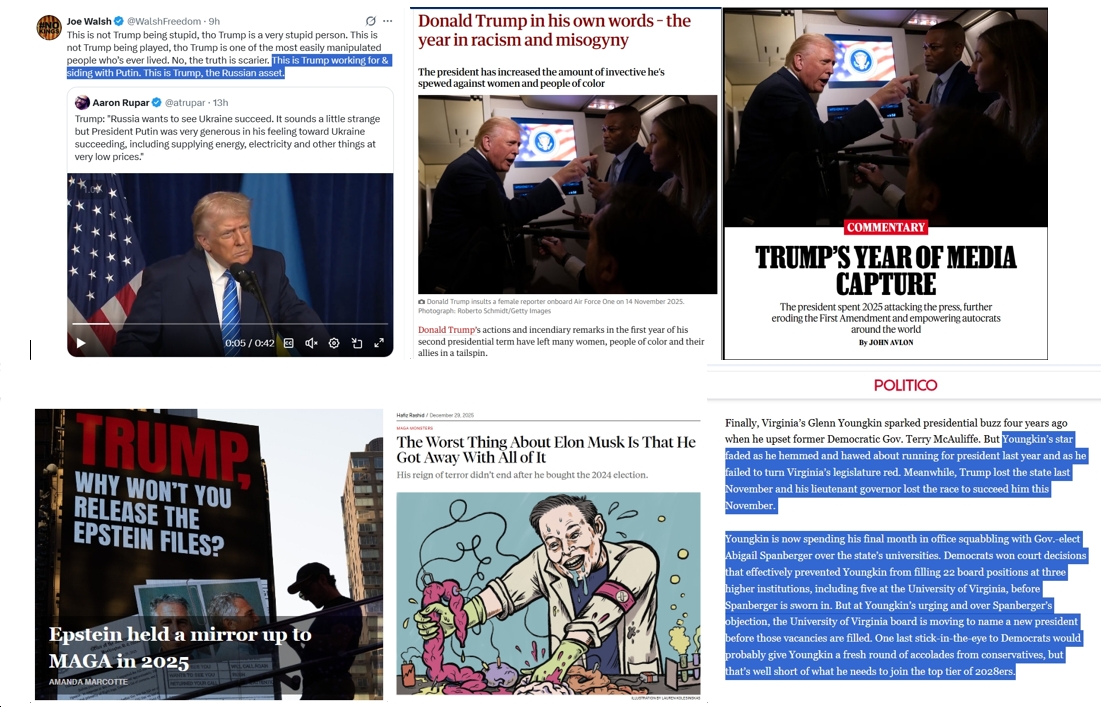 The departure of Dave Weigel from The Washington Post says less about blogging than it does about traditional print media’s attempt to reinvent itself online. Contrary to what most people think, Dave Weigel was not, I repeat not a blogger. He was a columnist or an online journalist or what have you. Dave Weigel was not a blogger, and he found that out last week.
The departure of Dave Weigel from The Washington Post says less about blogging than it does about traditional print media’s attempt to reinvent itself online. Contrary to what most people think, Dave Weigel was not, I repeat not a blogger. He was a columnist or an online journalist or what have you. Dave Weigel was not a blogger, and he found that out last week.
Dave Weigel was forced out of his job at The Washington Post because he had expressed a point of view that was antithetical to conservatives. He did so in a forum that he thought was private, but someone who clearly had an axe to grind with Weigel found his comments and made them public. Conservatives cried out that Weigel wasn’t “objective” enough to continue in his job of writing about conservatives in general and the tea party movement in particular.
That’s the big giveaway that Weigel wasn’t really a blogger: bloggers don’t have to be objective–bloggers can have, probably should have, points of view. Weigel was forced out of his job as a “blogger” because he didn’t adhere to “journalistic” standards. See? It was journalistic standards that got Weigel, not blogger standards. By blogger standards what Weigel did was pretty tame.
So-called “real” journalists are taught that they can be objective, that they can rise above petty human emotions and opinions and can be “objective.” Conservatives are taught that they can take advantage of journalists, requiring journalists to regurgitate conservative agitprop as if it had the same validity as the reasoned arguments typically offered by a liberal. Journalists that refuse to regurgitate conservative agitprop are called “biased” and “not objective,” terms that cause “journalists” to pass out as if they were nineteenth century Southern debutantes whose corsets were laced too tight. All a conservative has to do is complain of “bias,” and your typical journalist will wilt into a pile of rumpled crinoline faster than Scarlett O’Hara.
Liberals are taught that if you simply lay out all the facts of a case, then nearly everyone will agree on the best course of action. This is, of course a fallacy–a fallacy so identified with liberals that it is known as the “Liberal Fallacy.” The reality is, of course, that even if everyone could agree on the the facts of a case, conservatives would lie about the thing to preserve something they considered traditional. In addition, at least one prominent person who considered themselves liberal would sell out in exchange for a small campaign contribution–these are the people Democrats refer to as “Senators.”
The situation is further confused by the fact that there are professional conservative liars who do nothing but make up lies to support conservative positions. Journalists tend to treat these professional liars with the same professional courtesy they extend to fellow journalists. Liberals like to refer to these professional liars as “Charles Krauthammer” and “Pat Buchanan,” to name just two of the most common sobriquets.
It may not be possible for conservatives to “blog.” Blogging involves a certain intellectual independence that conservatives are not normally allowed to display. There are probably a few conservatives out there who would like to contest this point with me, but they need to get Andrew Breitbart’s permission before they attack me.
Libertarians might be bloggers. I see libertarians struggling with this issue all the time–mostly they lose–but it is heartening to see them engage in the struggle.
But I digress . . .
Group sites like Daily Kos are great, but real bloggers have their own websites where they angrily spew their own version of truth into cyberspace regardless of the consequences. If you are a journalist and someone calls you “biased,” you get upset and offer to resign, and the corporate types who pay your check will accept your offer if they receive enough hate-mail from right-wingers (note: corporate types do not read hate-mail from left-wingers). If you are a real blogger and someone calls you biased, you tell them to “GO F**K YOURSELVES” in allcaps.
Zing.
In short, “journalists” who want to “blog” come off about as authentic as upper-class white boys who want to “rap.” The corporate media saw in the blogging craze something to copy, a new field to move into even as the print versions of their publications withered away. Every major newspaper in the country now has dozens of online columnists or journalists calling themselves “bloggers.” But these “bloggers” draw salaries from media corporations and they are subject to editors. They don’t own the website they “blog” at and if they say something that their bosses aren’t comfortable with they are liable to find themselves unemployed.
Dave Weigel will be replaced by someone who writes more like the way the editors of the Washington Post want him to write.
That ain’t blogging.



![Sunday News: “Trump Is Briefed on Options for Striking Iran as Protests Continue”; “Trump and Vance Are Fanning the Flames. Again”; “Shooting death of [Renee Good] matters to all of us”; “Fascism or freedom? The choice is yours”](https://bluevirginia.us/wp-content/uploads/2026/01/montage011126.jpg)

![Thursday News: “Europe draws red line on Greenland after a year of trying to pacify Trump”; “ICE Agent Kills Woman, DHS Tells Obvious, Insane Lies About It”; “Trump’s DOJ sued Virginia. Our attorney general surrendered”; “Political domino effect hits Alexandria as Sen. Ebbin [to resign] to join Spanberger administration”](https://bluevirginia.us/wp-content/uploads/2026/01/montage010826.jpg)












